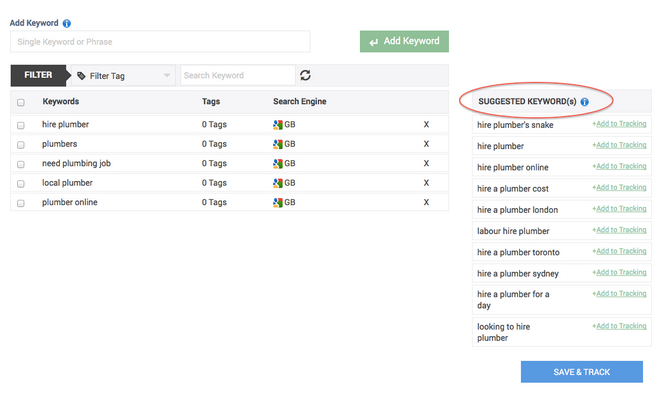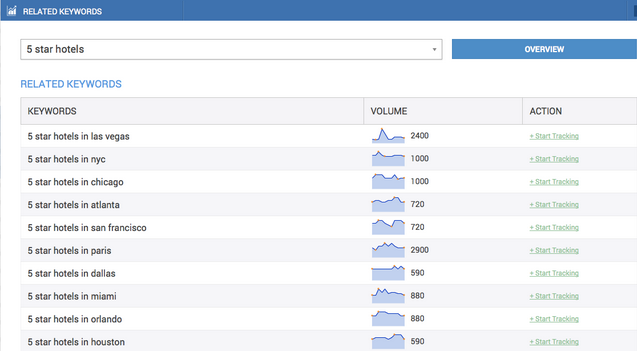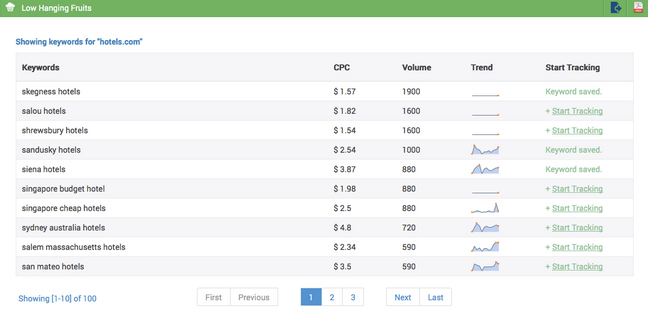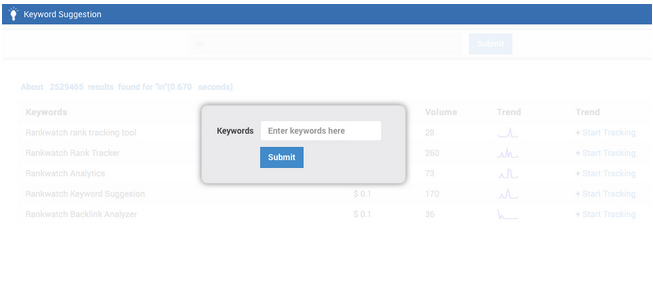Why do you need to do Keyword Research right before you start your SEO campaign?
9 out of 10 people use Search Engines to look out for the information they need.
You remember the good old days? (Okay, well good for some!) where you could easily stuff keywords all around- in the title tags, meta tags, repeat the keywords over content,play with backlinks and watch your website climb over the SERPs ladder. Wasn’t that wonderful? But then we have Google, who won’t let the game be so easy. The Hummingbird Update was an example of that.
If you have a website, you might be very familiar if not, somewhat educated about the your-site-needs-to-be-optimized requirement of Google to rank your website. Now if you talk of optimization, there are plenty of things you need to do (which is included in the learn section). We will keep this article limited to keyword research.
So Keywords and Keyword Research!
Google has over 100 billion search queries per month, for everything from ‘jalapeno nachos’ to ‘California advertising agency’. And in order for you to show up in the organic or paid results for these phrases (well of course if you belong to this particular category), you need your site to be optimized for those keywords, that are relevant for your business.
So, I guess you are now, somewhat clear with what are keywords. Well, if you still need a proper definition for it, here you go:
Keywords are simply words or phrases in your web content which makes it possible for the users to reach you via Search Engines.
What is Keyword Research?
Keyword Research is the first and foremost step that should come to your mind while beginning with your optimization mission. It is simply, researching and zeroing down on those words which, a user will probably search (in any given Search Engine), which directly (or sometimes, indirectly) relate to your business/products/services.
So, if you are an advertising agency based in California, users searching for ‘Advertising agency California’ should be able to find you in the organic listings of Search Engines.
Is Keyword Research an important player in the game of SEO?
Without a doubt, it is. Revising the aforementioned stats, 9 out of 10 people users make use of Search Engines to find an answer to their query. When these users type in their keywords/query, the Search Engine’s bots and spiders run their complex algorithms, scan through the giant database that has been crawled and indexed by them. They, then come up with results (websites) whose keywords matches with that of the query.
To put it simply, until you are not aware for the words or key phrases that are important to your website to rank, it is not possible to optimize, either the pages of your site or the content strategy to draw the intended traffic.
And if in case, your site is optimized for wrong keywords, i.e, keywords which are not related to your business/product/service offerings, you might get a lot of unqualified traffic
This would be frustrating for not only you as a webmaster (if you get lots of traffic, but no prospective leads), but would be equally annoying for the user, who might land on the website. Needles to say, first impression turns out to be the last impression for the users.
Conversely, if the user’s needs coincide with the information you have to offer, they will happily hang around, thus, increasing your leads.
So, how to start? Strategies, would you like?
Simply talking about how to do keyword research?
- Understand your website to generate your keyword goals:
Scan through your website and make a list of all the relatable keywords.Then, make a list of all the potential keywords keeping your niche in mind. If you are already clear with your business/product/service offerings, then keyword selection is all the more easy.
Another good way to get ideas for your keywords is the ‘Google Suggest’ feature. Supposedly, your business is into selling wedding dresses, you simply type wedding dresses in the search bar and a drop down of related searches would popup- these are the suggested keywords that you can target on.

To dig deep further, start writing on the search bar ‘wedding dresses a’- some more ideas would generate:

Do this with all the alphabets. This way you can get a pool of keyword ideas, from where you can easily narrow down to your required list of keywords.
Another way of finding out keyword ideas is the ‘Searches related to’ section of Google; this further refines your search terms:

- Research the audience and understand their intent:
Get into the user’s shoes while deciding the keywords for you website. Do some research about what the customers are looking for, like:
- What do they search when they want to learn something- get information about the product/service you offer, pricing etc.
- What do they search when they want to do something- buy, make an account, signup, shop, connect with you etc.
The best way to find this out is by scanning forums, social media platforms to see the search terms that people are using in their conversation. Additionally, you can have a small feedback form on your website, requesting customers to tell you what keywords did they use to come to your website or where did they get the reference to your website from.
- Analyze the competitors:
This is the most challenging and necessary part of your keyword research. The entire purpose of the marketing campaign is to better than your competitors and be ahead of them. First of all you need to know about the competitors in your niche. So if your business is that of wedding dresses based in Illinois, California, you can simply type in this in the search bar. The result that comes up on the SERPs are your competitors.

The box in yellow, shows the result of the competitors in your niche. Now, once you know who your competitors are, start scanning their sites for their targeted keywords. Go to their respective HTML source and look for their meta keywords.
Another way of knowing the keywords, which your competitors are ranking on, is by using the SEMrush keyword research tool. On entering the domain name of your competitor, you will be taken to page, which would be showing all the keywords that your competitor is ranking on. Additionally, it will show the other websites which are ranking on the same keyword.
If two or more of your competitors are targeting a certain keyword, then probably use the long tail versions of them.
- Understanding the keywords:
This is where we discuss the concept of ‘Popular’ or ‘Short tail keywords’ Vs ‘Long tail keywords’.
Generalized or broad keywords or short tail keywords/search terms such (‘wedding dresses’ or ‘advertising agency’) make up for 30% of the search query and have immense competition in the respective niche. So while getting a rank #1 for a generalized term like ‘wedding dresses’ might sound exciting, but lets face the reality that only 1 website out of 9,66,00,000 (yes, this is the number of results for the term, as can be seen from the screenshot below) will be ACTUALLY number 1.

The intent of a person searching wedding dresses might not be to buy but only looking for some information or images, so might not end up buying. Know the intent of your users and targeting the keywords accordingly.
So, its better to narrow down and make your keywords more specific. Example-Instead of just ‘Wedding dresses’, try going for ‘Wedding dresses in Chicago’. This will greatly narrow down the list of sites competing for the same keyword and if majority of your business is done locally, it will be an added advantage for you.
Long tail keywords, on the contrary account for almost 70% of the search queries. These types of searches are usually undertaken by those users, who are almost at the end of their buying cycle and closer to making their purchase decision . As the name suggests, they are longer than specific or short tail keywords.
Some examples of this would be ‘A-line designer wedding dresses at discounted rates in Chicago’
Needles to say, the users using long tail keywords are more close towards pulling the trigger and thus, taking the buying step. Some examples of this would be ‘A-line designer wedding dresses at discounted rates in Chicago’
These users thus, form better leads and have a higher chance of converting if your business/product/service offering closely matches their search.
You can even use the Google Adword Keyword tool, which gives you options of identifying the popularity of the existing keywords, create hundreds of synonyms for the same, filter out results etc.
So now that you have decided on some of the keywords, what next?
Land on to www.rankwatch.com, put in some keywords that you have selected and see the magic. On RankWatch, we do not restrict you on the number of keywords you can track, instead encourage you to track as many as you can so that, you have have more actionable data to act on, to empower your SEO campaign.
- Add Keywords Page: This is the first stage where you manually enter the keywords that you have decided upon. After entering this, RankWatch suggests you with a list of keywords you should consider tracking. You can simply click on ‘Save and Track’ and add the list of suggested keyword to your original list.

- Keyword Overview Page: This page will give you day-to-day rank results for the selected keywords.

- Low Hanging Fruits (LHF): This one is my favourite. It helps you identify hidden opportunities i.e. those keywords, which you might have been ignoring, but have the potential to improve your rankings. These are your keywords which are ranking on the second or third page of SERPs. It's better to optimize these keywords as they can get you a better ranking. This is accompanied with broad-match search volume, it’s search trend over a period of 6 months and their respected CPC’s.

- Keyword Suggestion Module: Lastly, RankWatch has a unique module designed specifically for users to be able to research into suggested keywords. This provides the users to research into their competitor’s keywords as well.

If you think it’s the end, its not.
You need to keep reviewing those keywords from time to time too. In other words, you need to measure the success of the keywords for which your site is optimised.
- Is the organic traffic, that is driven from the targeted keyword, a good number?
- Is the traffic converting into leads?
- Are you on the top pages of the SERPs with those keywords?
- Is your content marketing strategy consistent with your traffic and conversion goal?
Is your answer NO to most of the questions? Then you might need a little help here!
Call us and arrange a free demo with us. We are happy to help. :)


Share Your Thoughts